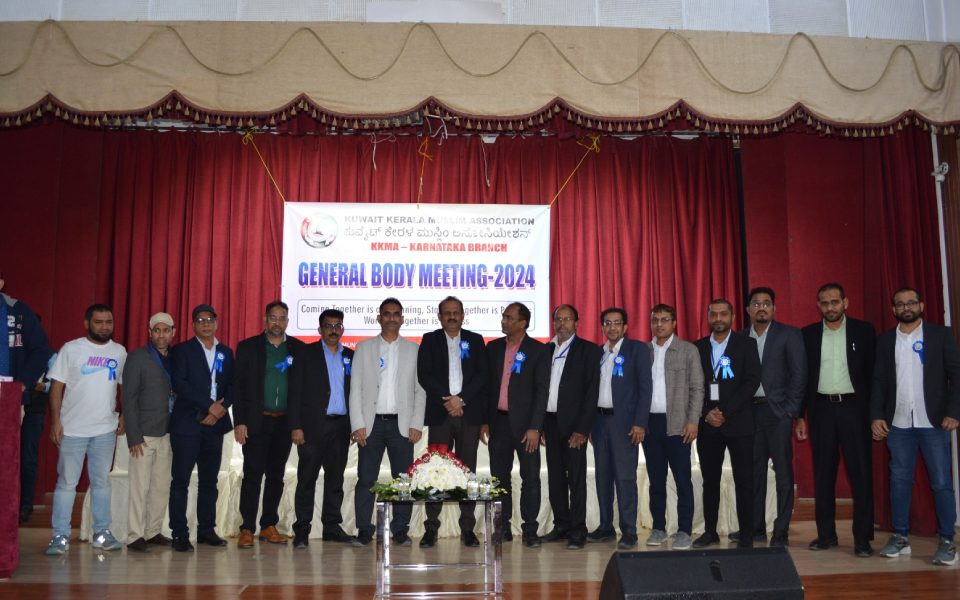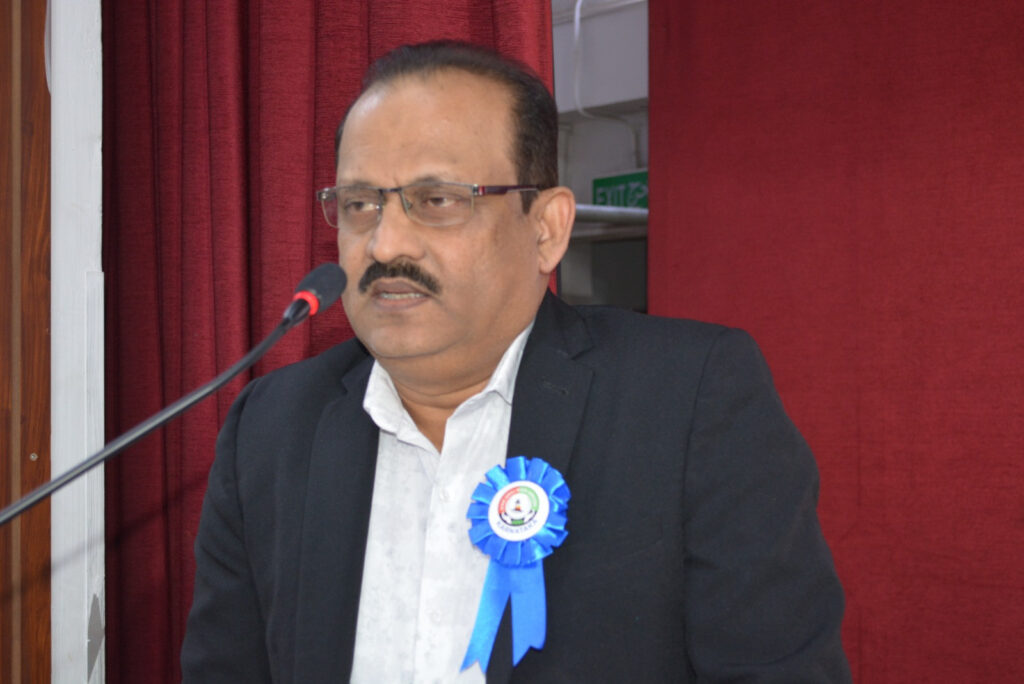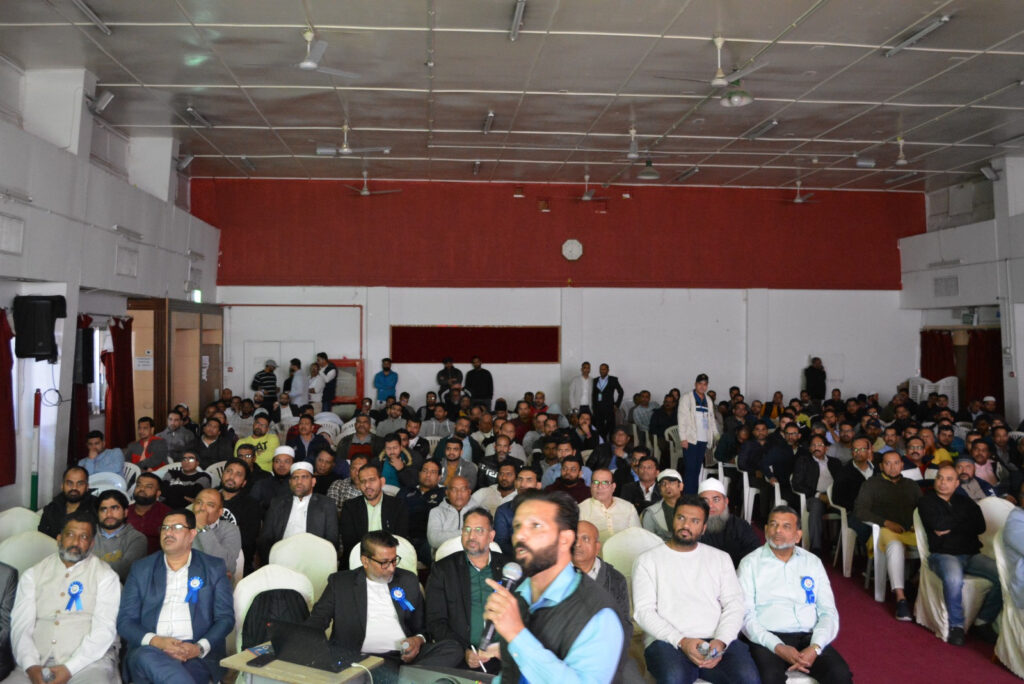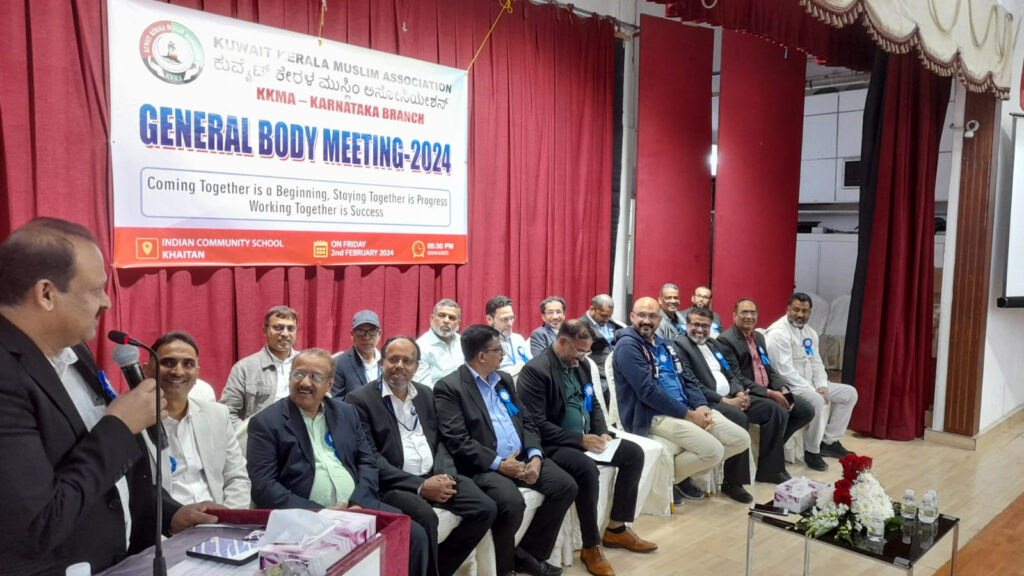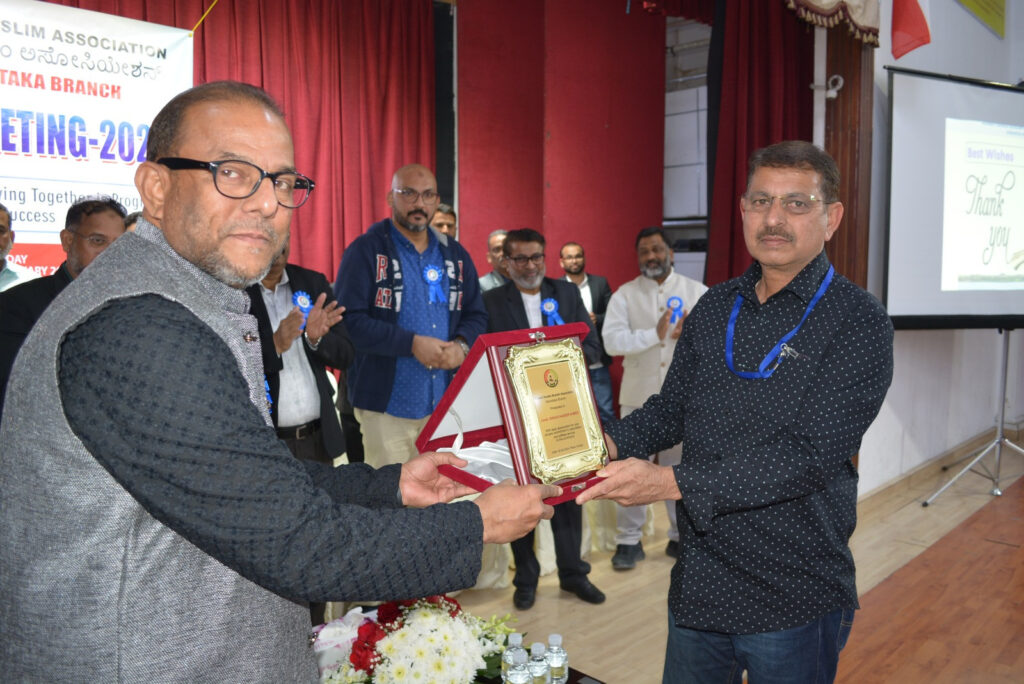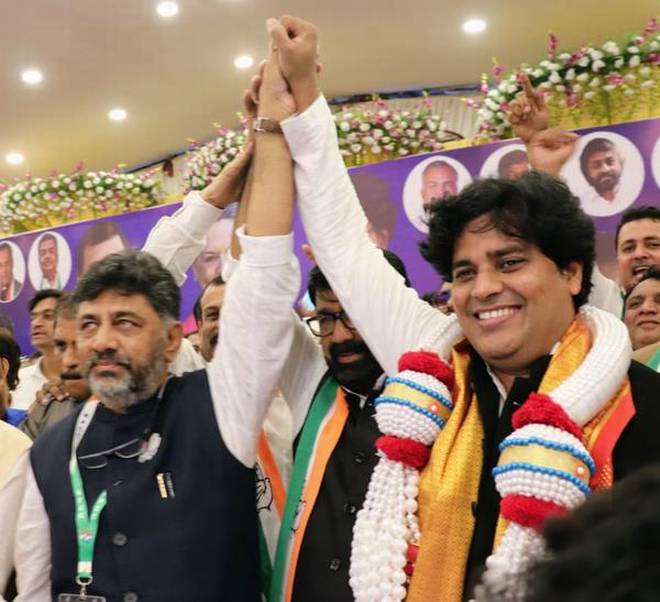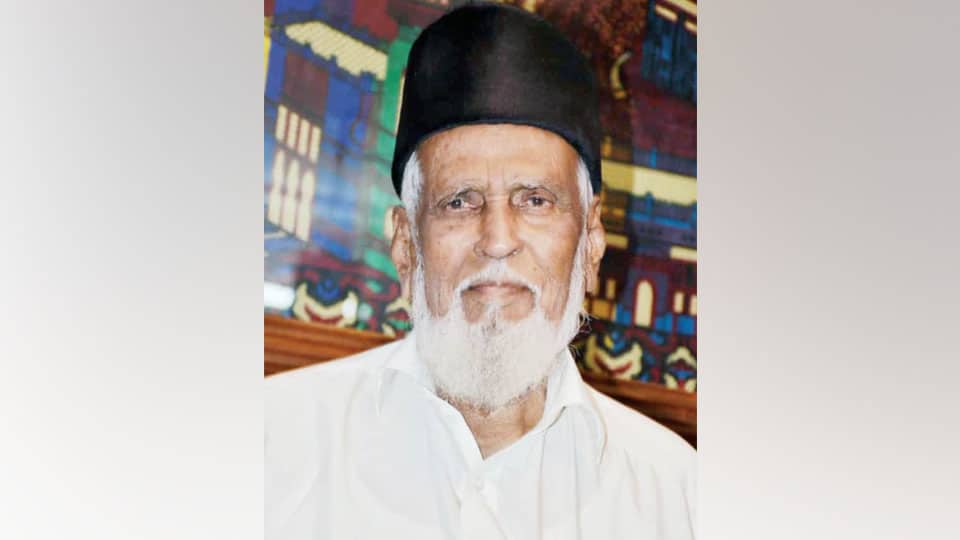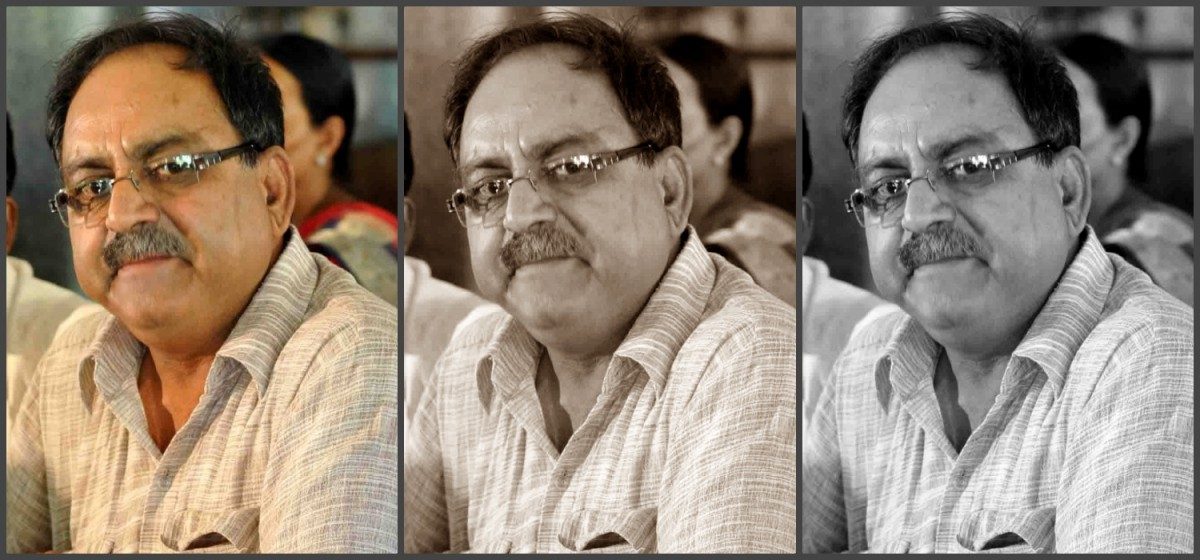Hyderabad, TELANGANA / Riyadh, SAUDI ARABIA :
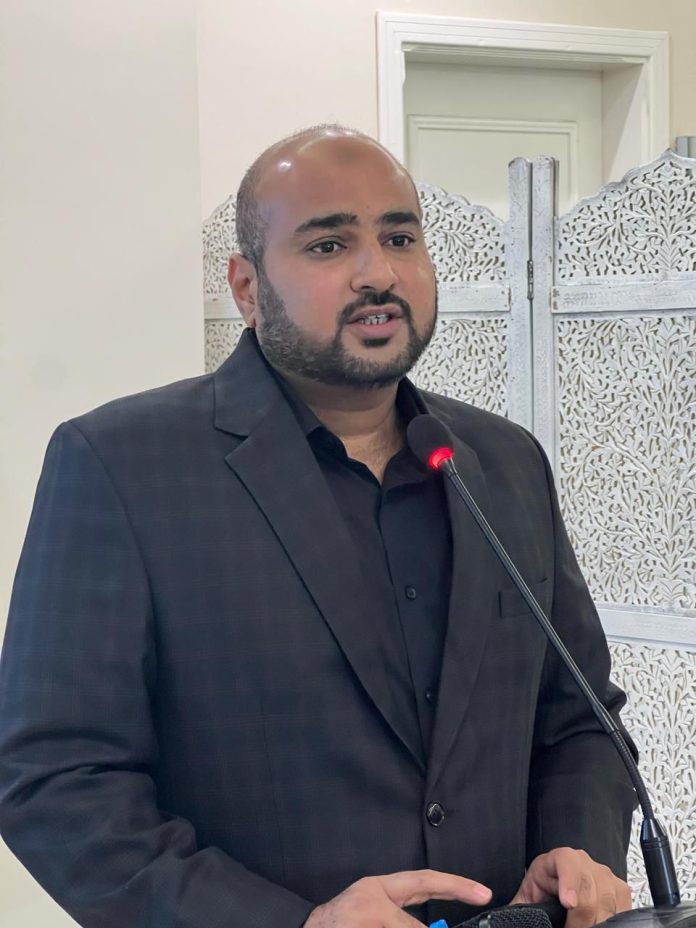
It was the late evening of October 25, 2023. I was fresh to the city of Riyadh, only having arrived two days prior, and had just secured a job in the construction industry. Out of the blue, I received a message from someone I’d come to admire even before meeting him—a humble and kind-hearted gentleman whose companionship would soon become an immense learning experience. He invited me to his office, and, understanding my unfamiliarity with the city, graciously arranged for someone to pick me up.
When I entered his office, I was greeted by a sense of calm and warmth, as though this was a place where great ideas took shape. It was here, in this serene setting, that I first met Mr. Wayez – Syed Wayez Ahmed, Founder and CEO of Innovwayz Technologies Company, KSA. Though we’d only spoken over the phone before, his welcoming embrace and the genuine warmth with which he received me made me feel as if I’d found a brother in this unfamiliar city.
I handed him a box of sweets I’d brought from Hyderabad, a gift from Brother Akram Muhammad, who had introduced us. With a modest smile, Mr. Wayez shared a bit about his journey, explaining that he had been running Innovwayz for over a decade but had visions of doing much more, particularly in empowering communities back in India.
Just then, a man entered the room with a charming smile. It was Mr. Mohammad Zaki, the Vice President of Innovwayz. Turning to him, Mr. Wayez instructed, “Mr. Zaki, take Azhar’s interview. Find out his interests and strengths, and see where he might best fit in our team.” I was taken aback. I had come expecting only a casual meeting but was now being offered an impromptu job interview. Although I had just secured another job, I didn’t hesitate and agreed to the interview.
What followed wasn’t an interview in the traditional sense – it was more of an introduction, a conversation where I shared my background, my education, and my experiences back in India. Mr. Zaki listened attentively, and by the end, I felt less like a candidate and more like a member of the Innovwayz family.
Returning to Mr. Wayez’s office, I was introduced to another remarkable individual: Mr. Abdul Khaliq. With a warm demeanour and a quick smile, he welcomed me with kindness. A close friend of Mr. Wayez, Abdul Khaliq wasn’t merely an employee at Innovwayz; he was its backbone. Over time, I would come to see his tireless dedication, his unwavering calm even during the busiest days. In that moment, though, we only exchanged a few words, but his commitment and humility left an impression that would deepen with every encounter.
As the night grew late, and the conversation grew warmer, Mr. Wayez extended an offer for me to join Innovwayz. When I hesitated, explaining that I’d already accepted another position, he simply looked at me with a calm resolve and said, “Chotey motey jagah kya kaam karte, yaha aye. Hum ko bhut kaam karna hai” (“Why work for smaller places when there’s so much we can achieve here?”).
I left his office that night feeling a sense of purpose and excitement, sharing the experience with friends and family. After performing Istikhara – a prayer for guidance when facing a significant decision – I decided to join Innovwayz. On October 29, I stepped into my new role as Business Development Associate, eager to contribute to a company that felt more like a mission than a job.
Spark of Collaboration: Founding the Business Friends Forum
On my very first day at Innovwayz, I mentioned to Mr. Wayez that I knew a few businessmen in Riyadh, Saudi Arabia, and suggested a casual meet-up to connect and explore potential collaborations. Without a moment’s hesitation, he agreed. “Invite them over,” he said warmly. “We can meet after Maghrib.”
That evening, our office buzzed with the energy of a gathering that would become the first of many.
Eight of us came together – Anees Mohammad, Director of Seahath Canning Company from Goa; Abdul Jabbar, the Country Manager for Seahath in KSA; Hamza Ali, Co-Founder of Standard Touch from Karnataka, alongside his brother and Country Manager, Abul Ala; Imranuddin, Founder of DB Systems; Abdul Khaliq, Innovwayz’s dedicated Business Development Manager; and, of course, Mr. Wayez and myself.
The conversation flowed naturally as we shared ideas, challenges, and aspirations over the next couple of hours. Toward the end, inspired by the potential in the room, I suggested the formation of a Business Friends Forum – a network to bring together Indian entrepreneurs in KSA. Everyone was enthusiastic, and the idea took root.
That humble gathering sparked something incredible. Within a year, over 70 entrepreneurs and aspiring businesspeople joined our community, each contributing their unique experiences and dreams. And so, the journey of the Business Friends Forum began, growing with every meeting, with every new connection.
Mr. Wayez Ahmed grew up in Karimnagar, Telangana, and after completing his MBA, he set off for Hyderabad in search of a job. There, he poured his energy into supporting his friends’ business ventures, but the early attempts didn’t pan out as he’d hoped. When opportunity didn’t knock, Wayez looked outward, eventually relocating to Saudi Arabia, where he had relatives who had already established themselves. He joined SAB as a developer and, over the next decade, gained invaluable experience while quietly nurturing his own ambitions.
Building Innovwayz Technologies
Through those years, his passion for business was unwavering. He worked tirelessly on various projects, from school initiatives to community functions – constantly experimenting, always learning, and never discouraged by setbacks. Finally, with his uncle’s support, Wayez founded an IT consulting firm a decade ago, inviting his closest friends to join him in the venture. The result of this relentless dedication and teamwork was Innovwayz Technologies, now a thriving business in Riyadh.
To build a company in Saudi Arabia is no small feat, especially for an expatriate from a modest Indian town. Unlike India, where the unorganised sector allows room for experimentation, Saudi Arabia’s highly regulated environment adds layers of complexity. For expatriates, starting a business meant partnering with a Saudi national. But recent changes to KSA’s business laws through the Ministry of Investment (MISA) allowed foreign entrepreneurs to operate independently, provided they maintain a parent organisation in their home country.
Today, Innovwayz stands tall – a company rooted in India, operating mainly in Saudi Arabia, and now expanding into the UAE. Mr. Wayez’s journey from a small town in India to the bustling business scene of Riyadh is a testament to resilience, vision, and the unwavering belief that he could succeed against the odds.
Venturing Beyond IT: Subhan Bakery & Alipapa Distribution
A few days into my new role, I sat down with Mr. Wayez Ahmed for a meeting where he shared details of a few ambitious projects his team was working on. Among them were plans to introduce Subhan Bakery, a celebrated bakery brand from Hyderabad, to Riyadh, and a food distribution company named Alipapa, a project with groundwork that had been laid for over a year.
Before we concluded our discussion, curiosity got the better of me, and I asked, “With our IT business running successfully, what made you venture into other fields?”
His answer was nothing short of inspiring. “What good is the money we’re saving if it doesn’t create opportunities? By investing in new ventures, I can provide employment to deserving young people,” he said, with a conviction that made me admire his vision even more.
After over a year of hard work, Subhan Bakery finally launched in Riyadh during Ramadan 2024, complete with a fully operational production unit and an outlet. To my surprise, Mr. Wayez asked me to take the lead on the project. I hesitated, admitting I had no prior experience managing such a venture. He responded with the same encouraging wisdom he had shown before: “I’m just as new to this as you are. Let’s learn as we go, and if we make mistakes, we’ll grow from them. Don’t worry; just give it your best.”
His words gave me the confidence to dive into the project wholeheartedly, embracing the learning curve and tackling each challenge as it came.
Meanwhile, he was also dedicating his time to overseeing the progress of Alipapa, which was officially registered in India and on track to launch in Saudi Arabia. With every step, he encouraged the team working on this food distribution company, confident that soon it would be yet another successful venture in his growing portfolio.
Bridging Borders: Shaheen’s Journey to Riyadh
One fine afternoon, I found myself in an insightful conversation with Dr. Thouseef Ahmed, the CEO of Shaheen Group of Institutions. During our discussion, he mentioned that Dr. Abdul Qadeer, the Chairman of Shaheen, was planning a visit to Saudi Arabia in September 2024. Without a second thought, I immediately messaged Mr. Wayez about the upcoming visit. True to his proactive nature, he replied right away, saying, “Okay, arrange the meeting and coordinate with the team,” even though he was vacationing in India at the time.
Together, we prepared everything meticulously. When Dr. Qadeer arrived, we held a productive meeting with the Shaheen team, followed by a social gathering and interactions with other community stakeholders in Riyadh. Inspired by this, we planned a visit to Shaheen School in Bidar the following week. After a series of discussions, an MoU was signed in Hyderabad between Dr. Abdul Qadeer and Mr. Wayez, marking the beginning of a new chapter: the establishment of Shaheen School in Riyadh, set to open in the upcoming academic year (around March 2025).
Through this experience, I observed remarkable leadership qualities in Mr. Wayez – his ability to delegate, his knack for identifying potential in others, and his unwavering commitment to uplift friends, family, and those in need.
The Visionary Journey from Hyderabad to Hara: Mr. Wayez Ahmed’s Path of Purpose
His entrepreneurial journey from Hyderabad to Hara wasn’t easy; it was filled with challenges, learning from setbacks, and continuously engaging and inspiring people around him. To those reading this, he may now appear as a business tycoon, but at heart, he remains simple, humble, compassionate, and deeply kind.
In a nutshell, his journey so far is marked by the following ventures:
- Startup 1: Innovwayz Technologies Company (IT Services) – Brought together childhood friends to build a team.
- Startup 2: Subhan Bakery, KSA (Food Production) – Partnered with an experienced businessman to launch a new team.
- Startup 3: Alipapa Global Merchandise (Food Distribution) – Engaged his cousins to form a dynamic team.
- Startup 4: Shaheen Group Middle East (Educational Services) – Brought friends and relatives together to expand into the education sector.
One thing is clear about Mr. Wayez: he is driven by purpose, not greed. His aim is to grow across multiple sectors, providing a platform for aspiring entrepreneurs to thrive alongside him. He embodies collaboration over competition, fostering a shared vision of collective success.
source: http://www.radiancenews.com / Radiance News / Home> Features> Focus / by Syed Azharuddin, Radiance News Bureau / November 05th, 2024


